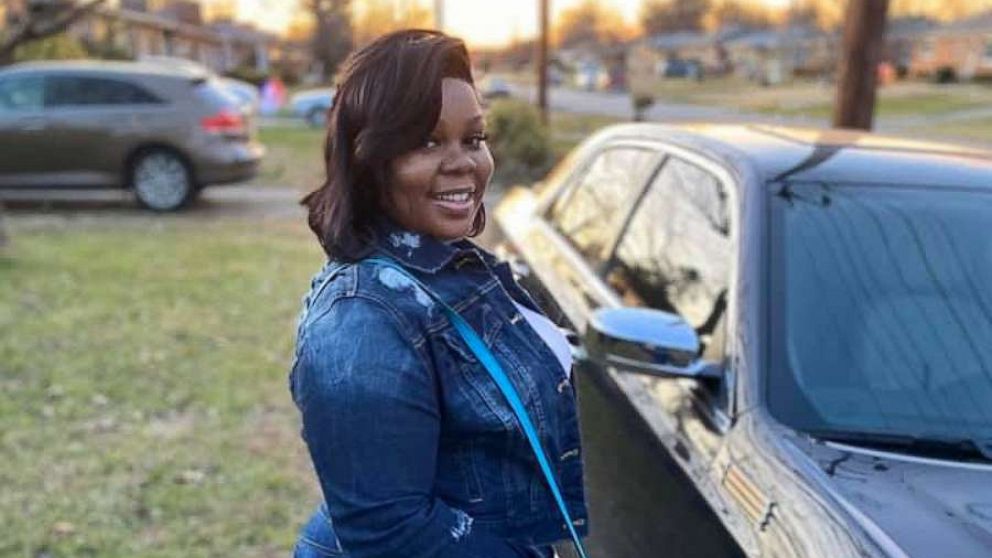A Kentucky judge has ordered the release of audio recordings from the grand jury hearing in the Breonna Taylor case despite warnings from state Attorney General Daniel Cameron that the move could jeopardize a federal investigation and an admission that no homicide charges were recommended to the panel.
The decision by a Jefferson County Circuit Court judge came after an anonymous member of the grand jury who heard evidence in the high-profile case filed a motion asking that the transcripts and recordings of the three-day hearing be released. The grand juror also requested the judge allow members of the panel to speak publicly about the evidence they heard and the decision they reached.
“My client is ‘aggrieved,’ to use that term, that what was presented is not being publicly disclosed,” the grand juror’s attorney, Keven Glogower, said at a news conference on Tuesday morning.
“I think they (the grand jurors) were aware … there were certain questions that were left unanswered,” Glogower said. “It’s the accountability and the sense of public trust to make sure that everything that can get out there does and there was some concern that maybe it wasn’t.”
In a statement released Monday night, Cameron claimed that prosecutors presented “all of the evidence,” even though the evidence supported that two of the Louisville Metro police officers involved in the shooting, Sgt. Jonathan Mattingly and Detective Myles Cosgrove, “were justified in their use of force” after having been fired upon by Taylor’s boyfriend, Kenneth Walker, when they busted open Taylor’s door.
The officers, who were serving a search warrant on Taylor’s apartment in the early morning hours of March 13, claimed they feared for their lives when Walker fired on them causing them to unleash a barrage of 32 shots, striking Taylor six times and killing her, according to statements made by Cameron.
“For that reason, the only charge recommended was wanton endangerment” against a third officer involved in the shooting, Brett Hankison, Cameron said.
Cameron did say last week that the prosecuting team walked the grand jury “through the homicide offense, and also presented all of the information that was available to the grand jury.”
“And then the grand jury was ultimately the one that made the decision about indicting Detective Hankison for wanton endangerment,” Cameron said.
Citing the secrecy of the hearing, Cameron declined to say if the grand jury was presented, beyond the recommended wanton endangerment counts, with options to consider homicide charges, including manslaughter and reckless homicide.
“The citizens of the Commonwealth have demonstrated their lack of faith in the process and proceedings in this matter and the justice system itself,” reads the motion filed by the grand juror. “Using grand jurors as a shield to deflect accountability for these decisions only sows more seeds of doubt in the process while leaving a cold chill down the spine of future grand jurors.”
During his news conference on Tuesday, Glogower added, “I think the dangerous precedent to set is more of a chilling effect of not letting the public in on what’s happening and trying to distort that level of secrecy to the extent that you’re, at least by appearance, not putting all of the truth out there.”
Attorneys for the Taylor family released a statement Tuesday, saying, “Daniel Cameron clearly failed to present a comprehensive case that supported justice for Breonna.”
“That conclusion is supported by the grand juror who came forward to say that the attorney general misrepresented the grand jury’s deliberations,” reads the joint statement from attorneys Benjamin Crump, Sam Aguiar and Lonita Baker. “We fully support the call to release the entire proceeding transcript as the only way to know what evidence was presented and how the grand jury instructions led to this outcome.”
Hankison, who was fired in June for violating police department policy in the shooting, was the only officer indicted in the case but not for Tayor’s death. The grand jury announced three felony counts of wanton endangerment against Hankison for firing shots into Taylor’s apartment that penetrated a wall of the residence of a white family next door to Taylor’s apartment.
Hankison pleaded not guilty to the charges during his arraignment on Monday.
Cameron said that none of the 10 shots fired by Hankison struck Taylor, while the bullets that did hit her were fired by Cosgrove and Mattingly. Citing an FBI ballistics analysis, he said Mattingly fired six shots and Cosgrove fired 16 bullets, including the fatal shot that hit Taylor.
Jefferson County Circuit Court Judge Ann Bailey Smith ordered that recordings from the grand jury hearing be placed into the court record by noon on Wednesday despite objections from Cameron, who said he will comply with the judge’s order.
The judge’s decision was not based on the grand juror’s motion, since it was only filed Monday night and there hasn’t been a hearing. Judge Smith ordered the recording released as part of the normal trial rules of discovery.

